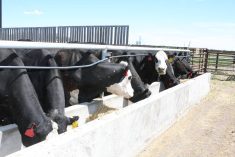As a personal and business coach, I have worked with many farm and ranch couples to help them figure out how to get what they want from their ranch life. Usually men want to concentrate on how to streamline production and organize cash flow. These are important, but often not the best places to start.
I like to start by helping couples get a sense of balance and fulfilment in their lives. This is particularly important when you are over 50.
Here’s why. If you are self-employed, as most farmers and ranchers are, your peak earning year is likely to be around age 50. After that your energy starts to drop, interest in what you have been doing starts to wane and you just don’t work as hard.
Read Also

Agriculture productivity can be increased with little or no cost
There’s a way to enhance agricultural productivity with little or no cost. It doesn’t even require a bunch of legislative changes.
Let’s look at a couple of fictional characters, Tony and Susan. This is a scenario I use in my goal-setting courses.
Tony and Susan are 52 and 50 and have been farming for 30 years. They crop 800 acres and run a 60 head cow-calf operation.
Two years ago Tony slipped in the yard and broke his right leg. It is taking him longer to heal than it would have when he was younger and there are many days when his leg is still painful. He tries to hide this from Susan and has not mentioned that he is finding it more difficult to get the work done.
Susan would like to spend more time visiting their only daughter, who is married and lives 800 kilometres away.
On the surface the farm appears to be successful and Tony and Susan have reached their goal. The question is, what is their goal?
The way it stands, Tony is likely to become depressed as he continues his decline and Susan will become more worried, but will have no way of knowing what is wrong with Tony. They will have less comradeship and intimacy. Tony may begin to think his farming life is over and there is nothing left to live for. A heart attack may not be far away.
But imagine what would happen if they made a few changes. Tony might admit to Susan he was having a problem keeping up with the farm and between them they could come up with a plan that would give them the life they want, once they figured out what that is.
Writing down a few conditions they want in their lives is a good start. It might look a bit like this:
- We want to be debt free and live in the country until we are no longer able to comfortably do so.
- We want to see our daughter at least twice a year.
- We want to have enough time and money to take a major trip to a foreign country every two years.
- We want to make a contribution in our community.
- We want to do work we find meaningful and interesting, with time for hobbies and other pursuits.
Suppose Tony is getting tired of looking after cows or wants to crop less land. The couple could sell the cows, pay off debt and put the rest in safe investments.
Tony could rent part of his farm out for cash rent, which would give him another stream of income while cutting his workload. He could crop the remaining land and have just the amount of work he enjoys.
Susan has been interested in working off the farm, so now maybe she could take a part-time job in town.
In the winter, with no cows to feed and the flexibility of Susan’s part-time job, they would be free to visit their daughter, and with the income they have, could make the odd trip abroad.
When they hit 65, or even earlier if they choose, the Canada Pension Plan and Old Age Security kicks in, and they will have another $20,000 or so per year to live with. They will still have the farm income, no debt and the time they want to do the things they want, now that they have decided what they want.
Sounds simple doesn’t it? From quiet desperation to fulfilling semi-retirement with just a bit of communication and planning.
The hard part for many men is talking truthfully with their wives about how things are with them, and what, ideally, they would like in their lives. I have seen dramatic changes in the lives of men who have done it.
Edmonton-based Noel McNaughton is a professional speaker, facilitator, coach and writer who specializes in guiding men and women through the uncertainty of life transitions. He can be reached toll-free at 877-736-1552. Website: www.midlife-men.com.














